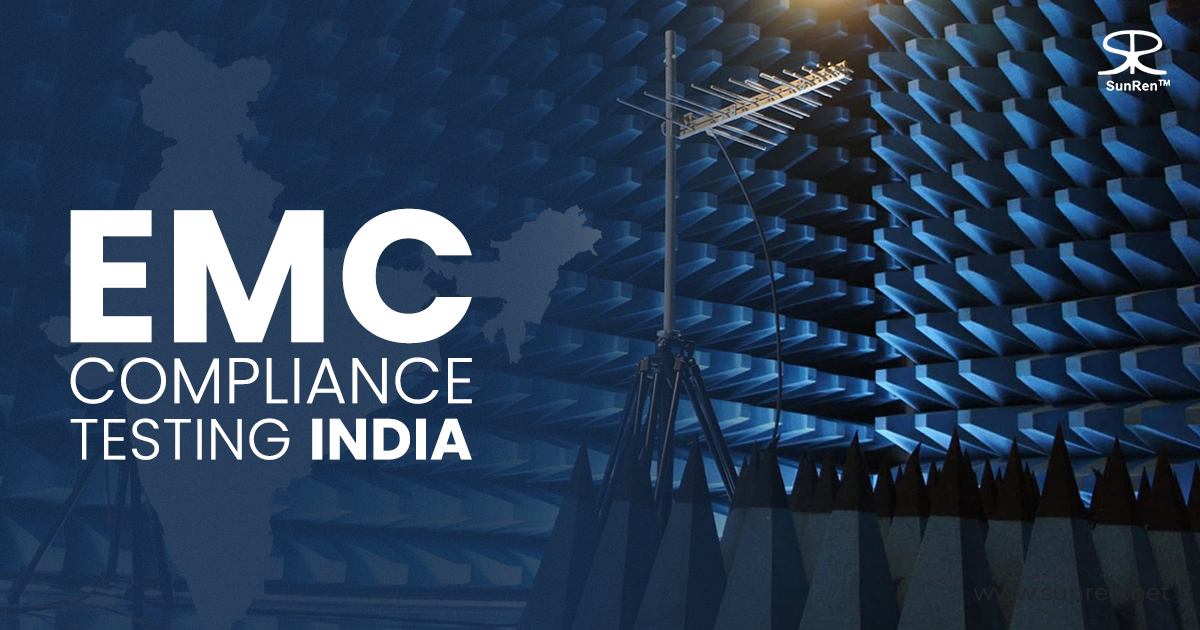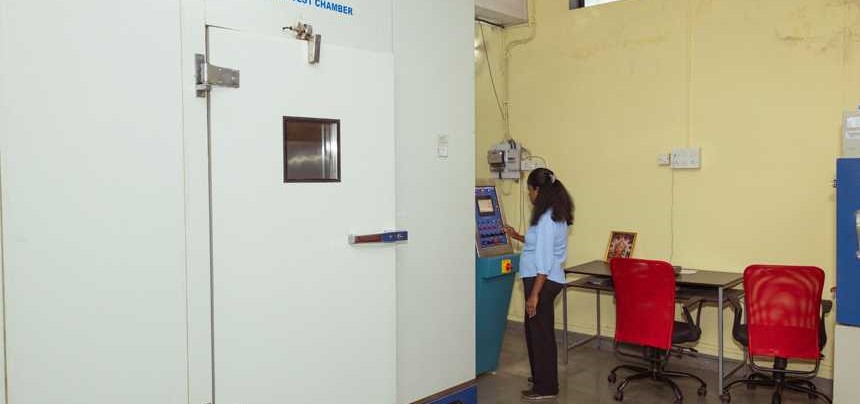BIS Certification in India: Process, Requirements & Benefits

Strong 8k brings an ultra-HD IPTV experience to your living room and your pocket.
The market in India is strictly regulated and product safety and quality is the key not only to consumer confidence but also into entering the market legally. Bureau of Indian Standards (BIS) has a significant role to play to certify that the products produced attain the predetermined standards with its effective certification system. To the manufacturers, importers, and exporters, familiarity with BIS certification services India is mandatory in order to comply with the regulations of any product, continuation of business, and enhancement of brand image. This is the ultimate guide to the BIS certification procedure, core requirements, and real benefits of cooperation with BIS certification agencies in India based on the recent regulatory changes and particular industry best practices.
What is BIS Certification?
- Bureau of Indian Standards (BIS) is a National standards body, working under the aegis of the Ministry of Consumer Affairs, Food & Public Distribution, Government of India.
- In 1987, BIS came into place of Indian Standards Institution (ISI) and it formulates standards, tests products, and certifies various products of extensive variety.
- BIS certification services India is undertaken so as to ensure products conform to India standards (IS) which ensures safety quality and reliability in products to both consumers and business.
Types of BIS Certification Services India
BIS certification is not a one-size-fits-all process. There are several schemes tailored to different product categories and business needs:
ISI Mark Certification (Scheme I):
- The most recognized mark for quality and safety in India.
- Mandatory for products ranging from steel, cement, and electrical appliances to automotive components.
- Involves factory inspection and product testing at BIS-recognized labs.
- Both domestic and foreign manufacturers can apply, with foreign applicants managed under the Foreign Manufacturers Certification Scheme (FMCS)1.
BIS Scheme X:
- Introduced in 2022 and expanded in 2024, this scheme covers machinery, mechanical components, and plant engineering products.
- Requirements are similar to ISI, including factory audits and compliance with Indian Standards.
- Products include pumps, compressors, gearboxes, cranes, and construction machinery.
Compulsory Registration Scheme (CRS/Scheme II):
- Launched in 2012, CRS covers electronics, IT, and lighting products.
- Focuses on product testing and self-declaration, without mandatory factory inspection.
- The list of products under CRS is regularly updated by the Ministry of Electronics and Information Technology (MEITY).
Other Schemes:
- BIS also operates schemes for hallmarking, eco-labeling, and more, but ISI, Scheme X, and CRS are the most relevant for most manufacturers and importers.
Products Requiring BIS Certification
The list of products requiring BIS certification is extensive and growing, including:
- Cables, steel, safety glass, automotive rims
- Cameras, power adaptors, LEDs, monitor, displays
- Metal machinery, stone, ceramics, construction and mining machinery
- examples of pumps, centrifuges, compressors, cranes, weaving machines
The government entities such as the Ministry of Heavy Industries update the mandatory list, regularly. It is highly important to verify the most recent notifications or inform BIS certification services India regarding whether your product will need certification or not.
The BIS Certification Process: Step-by-Step
1. Product Classification and Standard Identification
- Identify the correct Indian Standard (IS) for your product.
- Check if the product falls under ISI, Scheme X, or CRS.
2. Application Preparation
- Gather technical documentation, product specifications, and test reports.
- For foreign manufacturers, appoint an Authorized Indian Representative (AIR) as the local point of contact.
3. Product Testing
- Submit product samples to a BIS-approved laboratory for testing as per relevant IS.
- For ISI and Scheme X, factory inspection is mandatory.
- CRS products require only product testing.
4. Factory Audit (if applicable)
- BIS officials conduct a detailed audit of the manufacturing facility to verify processes, quality control, and compliance with standards.
- The audit is required for ISI and Scheme X, but not for CRS.
5. Document Submission and Review
- Hand over all the documents, test reports as well as audit reports to the BIS.
- BIS reviews the application and can ask some questions or clarifications.
6. License and Marking
- When a satisfactory review is made, BIS grants the certification and allows the application of the ISI mark (or CRS mark, as the case may be), on the scheme.
- That every certified product may be branded with corresponding BIS logo and license/registration number to enable traceability.
7. Ongoing Compliance and Renewal
- BIS certificates are valid for 1–3 years, depending on the scheme (ISI: 1 year, CRS: 2 years, Scheme X: 3 years).
- Renewal requires updated documentation, possible retesting, and payment of renewal fees.
- BIS may conduct random audits or request fresh test reports during the validity period.
Key Requirements for BIS Certification Services India
- Technical Documentation: Detailed product specifications, drawings, and bill of materials.
- Test Reports: From BIS-recognized or accredited laboratories.
- Factory Audit: For ISI and Scheme X, a successful audit is mandatory.
- Authorized Indian Representative (AIR):We need a domestic representative who has to be chosen by foreign manufacturers.
- Marking and Labeling: The goods should show the mark of BIS and license/registration number.
- Change Management: BIS should be informed about any change in the product design materials or manufacturing mechanism; this may need to get tested again.
Recent Updates and Trends
- Scheme x expansion: By August 2024 the number of machinery and components falling within the scope of scheme x certification increases significantly, and this includes a very broad spectrum of industrial and construction equipment.
- Unified Marking: BIS is also shifting to a unified approach of mark with ISI mark on all schemes that makes their product identification and compliance easier.
- Digitalization: The BIS portal has gone online so that it is now possible to apply online, upload documents and even track status of the application process resulting in greater transparency and efficiency.
- Random Audits: BIS has become more rigorous in auditing product and sample testing as a part of achieving constant compliance and market surveillance.
Benefits of BIS Certification Services India
- Legal market access: Products that have undergone the BIS certification process are the only products that should be sold, imported, or distributed in India.
- Consumer confidence: The presence of the BIS mark denotes product quality, safety, reliability and helps to build better brand reputations and confidence in the customer.
- Less Risk: The adherence to the BIS standards can lessen the possibility of product recall, penalties, and legal cases.
- Competitive Advantage: Creation of the competitive advantage through the BIS certification, providing advantage in some specific market places where safety and quality are the first priority in sphere.
- Simplified imports: BIS certified products go through customs more quickly and thus, there is less delay in the supply chain.
- International Acceptance: BIS certification is gaining international acceptance among buyers and regulators at an international level facilitating export intentions.
Common Challenges and Solutions
- Complicated Laws: The list of changing products and standards may be difficult. Contacting the experienced BIS certification services India providers guarantees correct classification and compliance.
- Backlog in the Laboratories: The labs, who are already approved by BIS, may also get backed up. This risk can be overcome by early planning, and pre-testing.
- Documentation Errors: Missing or incorrect paper is one of the main reasons that cause delay in application. Once a piece of work is made, make sure that it gets checked twice, and that documentation follows accordingly.
- Audit Readiness: Be ready to take the audit of the factory by having a strong quality control mechanism and train your staff.
Working with BIS Certification Services India
- Expert Guidance: Certification services in India Professional BIS certification services providers provide an entire line of services, including product classification, documentation, coordination of tests, preparation of audits, etc.
- Local Representation: A reliable AIR helps foreign manufacturers to communicate easily and make compliance much easier.
- Regulatory Updates: The service providers maintain contact with the clients to inform of variations in standards, products lists and process thus maintaining their continued compliance.
- Efficiency: The BIS certification outsourcing will enable the manufacturers to concentrate in the core business with the entire regulatory obligation being taken care by experts.
Frequently Asked Questions
How can I get a BIS certificate in India?
The procedure to get a BIS certificate is by making an application through the BIS portal, submitting product samples to conduct a test and then filling the necessary paperwork.
What is the cost of a BIS certificate in India?
It will depend upon the product and will include application, testing and license charges mid-way being about 25,000 to 1, 00, 000 and its higher end may be 1-2 lakh.
Who provides BIS certification?
BIS certification is offered by the Bureau of Indian Standards (BIS).
Is BIS a government agency?
Yes, BIS is a national standards body under the Government of India.
Conclusion
BIS certification is not just another regulatory milestone; it is a strategic initiative that promises sound product quality, safety testing and market success. Being equipped with the correct strategy and help of BIS certification services India, manufacturers and importers will be able to make the process cost-effective, efficient, and finally open new markets by showing them the doors of one of the most rapidly developing markets in the world. Keeping updated, equipped, and in action is the only key to taking the full advantage of BIS certification to your business
Note: IndiBlogHub features both user-submitted and editorial content. We do not verify third-party contributions. Read our Disclaimer and Privacy Policyfor details.







